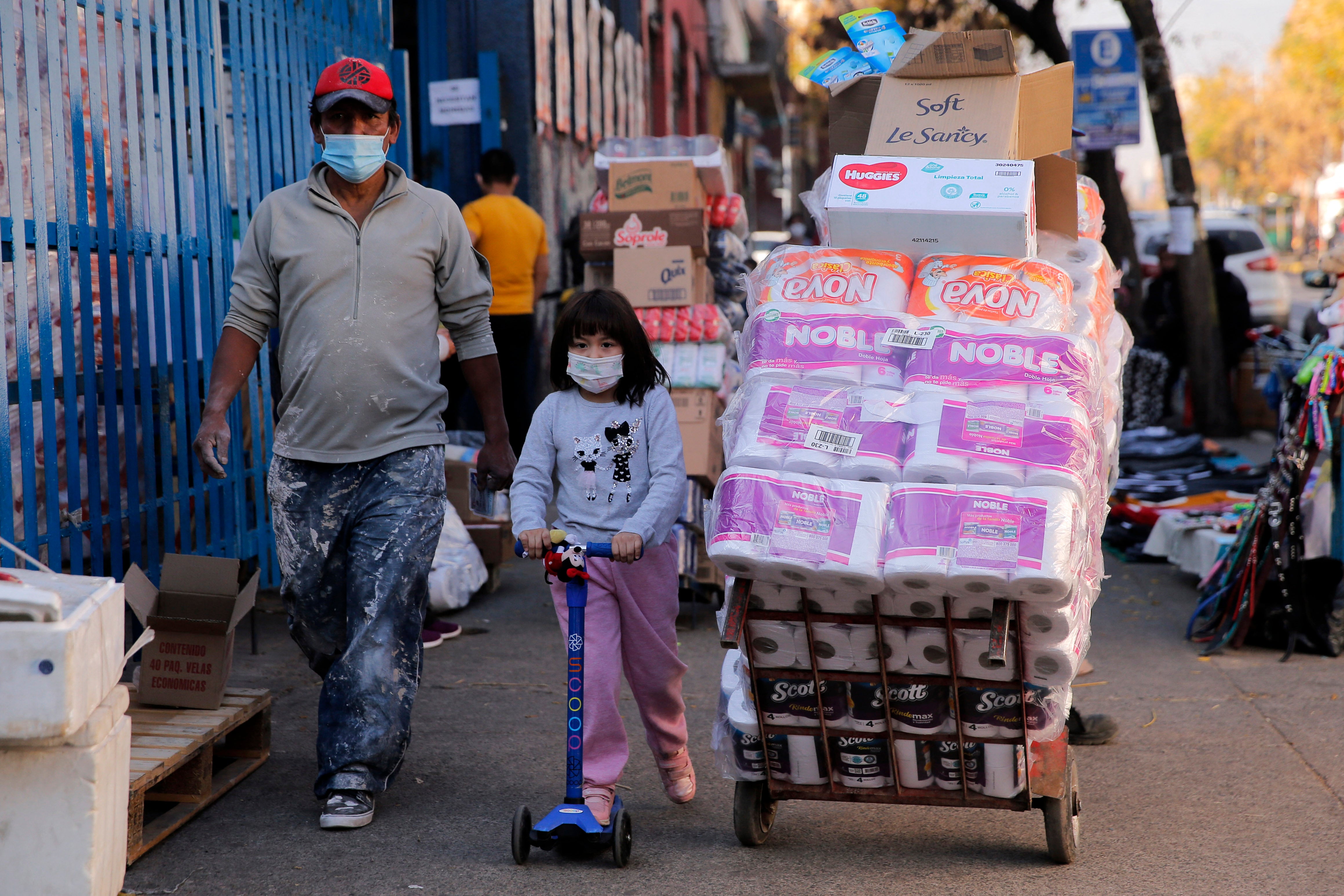Chile capital enters lockdown – despite mass vaccination
Intensive care beds in Santiago reach 98 per cent capacity amid fresh surge of virus

Chile has announced a lockdown in its capital, Santiago, amid a rise in coronavirus cases, despite more than half of the country’s population being fully vaccinated.
Under the new lockdown order, millions of people living in Santiago will be forced to stay home starting on Saturday.
The lockdown comes as Chile reported 7,716 new daily cases on Thursday, with health officials warning that intensive care beds have nearly reached full capacity.
In a statement, Jose Luis Espinoza, the president of Chile’s National Federation of Nursing Association, said intensive care beds in the capital region had reached 98 per cent capacity.
He warned that health care workers with his association were “on the verge of collapse”.
The rise in cases has unfolded even as more than half of the country has been fully vaccinated, with around 58 per cent of residents having been fully jabbed.
As many as 75 per cent across the country have received at least one vaccine dose, with the country’s vaccination programme on a per capita basis among larger countries making it the vaccination leader in the Americas.
The majority of those contracting Covid in the capital region are believed to have not yet been fully vaccinated.
Vaccines are not 100 per cent effective and they take time to reached their highest level of efficacy. But the second wave in Chile is also believed to be driven by lockdown fatigue and the rise of more contagious variants.
Dr Cesar Cortes, an emergency physician at the University of Chile hospital, said he believed part of the issue is that people who stayed home last year over fears of contracting the virus are now more concerned about being without work.
“Last year, there was low circulation and the confinement measures were more effective because people were scared of dying,” he said. “That’s not happening now.”
Still, he said that without Chile’s advanced vaccination programme, he believed the situation would be far worse.
“The complicated situation we are seeing now would be catastrophic,” he said.
Additional reporting by Reuters
Join our commenting forum
Join thought-provoking conversations, follow other Independent readers and see their replies
Comments